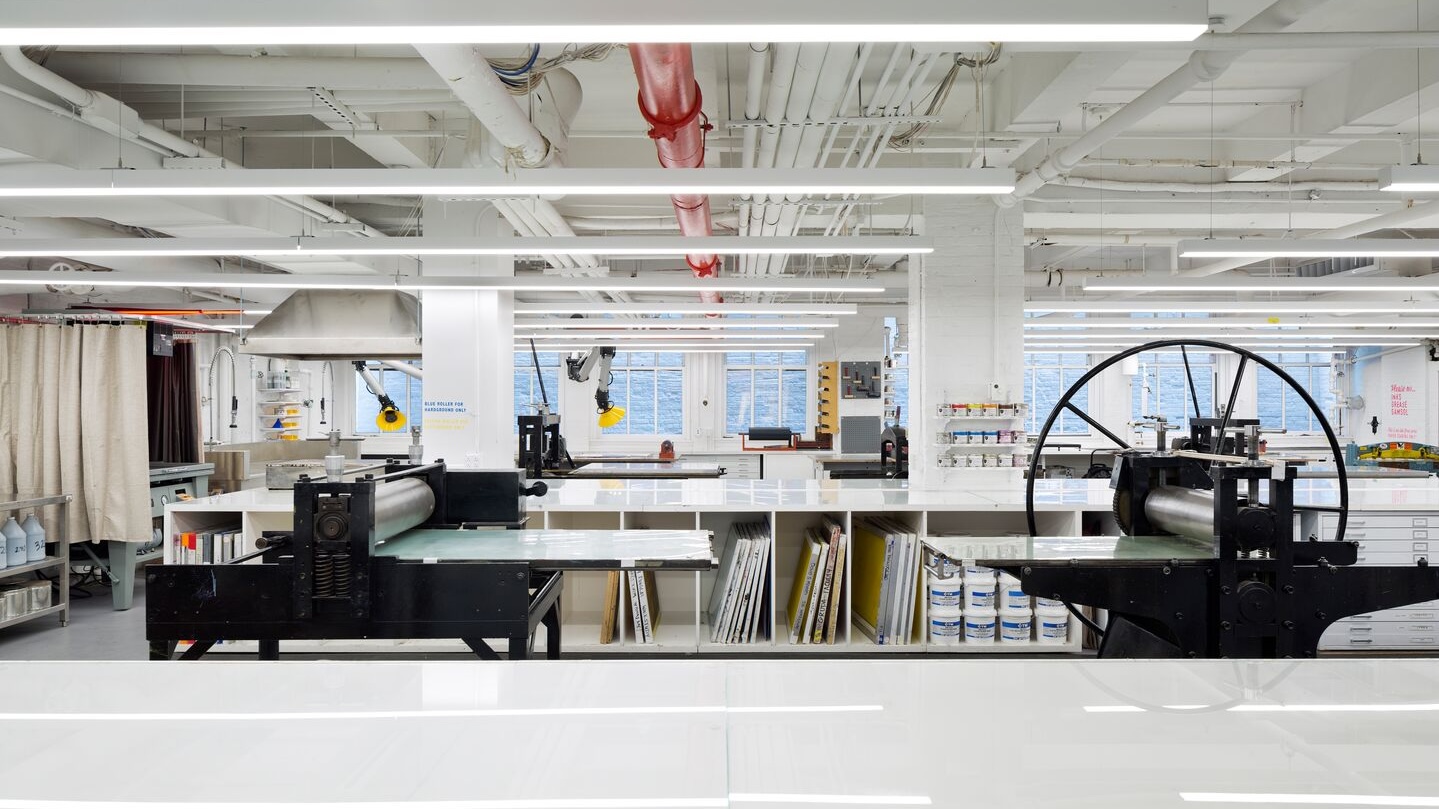This story was updated on April 3rd 2023 at 07:00 p.m.
On the morning of March 30, Shana Agid, the Dean at the School of Art Media and Technology, sent an email alerting printmaking students of a violation, in which blood was used to create screen prints. “In my 16 years working here, nothing like this has ever happened,” Agid said. The email, which was sent to printmaking majors and minors, and those briefed on safety protocols, confirmed that the incident occurred on the weekend of Feb 25.
The Printshop+Book Arts Code of Conduct currently states that all “materials, chemicals, and substances must be cleared with health and safety before use,” in the making center. The email describes that this student was not given approval to violate these guidelines.
According to the email, the person who witnessed the incident first-hand made the initial report on March 20. The email said that the Making Center staff immediately informed the Health and Safety department “to enact the safety protocols in place for blood contamination.” From there, the print shop was cleaned and disinfected, and the screen used by this student was taken out of the Printmaking Studio.
“The issue that has been the most concerning for me in all of this is the extent to which consent was violated,” Agid said, “When that gets broken it then requires a period of repair.”
Following the event, some students were concerned that the blood used in the screen prints potentially contained HIV (human immunodeficiency virus), raising concerns for students past and future use of the printmaking machines. “Of course we were all like, what the frick, that’s so dangerous, how did this happen?” a photography major at Parsons School of Design said.
In order to acknowledge these concerns, while also avoiding amplifying stigmas that surround HIV and AIDs, Agid’s email addressed the rumor. Agid outlined how HIV and AIDs can be contracted, “It felt important that part of that kind of larger care for the community was also making sure that we were giving people good and real information,” Agid said.
According to the Centers for Disease Control and Prevention (CDC), HIV can be transmitted through anal or vaginal sex, sharing needles or syringes, and through drug injection equipment. HIV cannot be transmitted through casual contact as it dies outside the body, and loses its ability to infect within less than a minute.
As described on the New School Makings Center page, all on campus studios and equipment require a mandatory orientation. However, the Printmaking Studio is also used as a classroom as well as a laboratory, meaning those who take printmaking classes do not technically need to complete the orientation process.
The Office of Student Conduct and Community Standards has begun an investigation and school leadership is planning to follow up with the incident and assess harm done to the community. Agid believes a conversation to build back community trust as well as revise community safety guidelines will be had in the near future.
The email states that students are welcome to discuss additional concerns with Tamara Oyola-Santiago, Director of Wellness & Health Promotion, wellness@newschool.edu. Additional health services and testing information sites are available on HIV Testing – NYC Health.
Correction: A previous version of this article stated that an incorrect date of the incident’s occurrence. This article was updated with the accurate date of the incident’s occurrence which was the weekend of Feb 25.








This is one of the clearest articles I have ever read! Kept me hooked the whole time!
what did they print tho